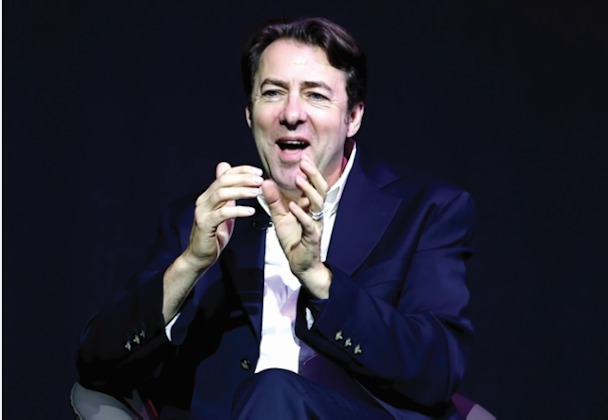What is creativity? Broadcaster Jonathan Ross talks blank pages, comics and classic storytelling
In the latest in a series of interviews exploring pure creativity, The Drum, in association with Millennial Media, catches up with broadcaster Jonathan Ross.

Jonathan Ross is no stranger to storytelling, with a long and varied career of doing just that, including the almost decade-long chat show Friday Night with Jonathan Ross. The Drum caught up with the TV presenter and broadcaster at What is Creativity? partner Millennial Media’s recent IAB Digital Upfronts 2015 event.
During the course of the interview (available to view on thedrum.com) he opened up on his views on storytelling, the impact of technologies like virtual reality and 3D on the film and TV industry, and the positive impact of social media.
We also asked him to explore the essence of creativity itself; how it is conceived, nurtured and grown.
How do you define creativity?
When you start with nothing and then you have something, it’s as simple as that. When you have a blank page or a camera with nothing in it, or you’re in a studio and by the time you’ve left there’s something there that wasn’t before. That’s creativity.
Where do your creative ideas come from?
Outside television, the other type of creativity I’ve been getting involved in recently is writing. What I like about writing, particularly in comics, is that you can do anything. You’re not restricted by things like budget. If you’re making a movie and you want to tell a story where all of New York is lifted up in the air and finds itself on another planet, that would be a lot of special effects. If you’re writing a comic, it’s still just lines on a page. If you’re writing a novel, it’s still just letters. So there’s complete freedom and that’s why I think storytelling in its most basic form will never die.
But because you can do anything, you need to know what you want to do. Because you can tell any story, you have to think what story you want to tell and why. The best stories are where there’s some sort of spirituality involved. I love big blockbuster movies but the things that you respond to most are when there is some connection on a human level, when someone has something to say about the human existence and condition and how we respond to each other. That’s the creativity that survives and endures. That’s why we’re still reading Shakespeare today, because he had an uncanny ability to look into other people and know what made them tick and could point out the foibles, inherent humour and tragedies in their situation.
So when you have comic book artists or musicians or novelists, those that are connected to humanity and have something to say about it, that’s the creativity we respond to best and that endures.
Can creativity be learned or taught, or is it innate?
Creativity can be taught and is also innate. The desire and compulsion to tell stories is in most of us and you can teach people to use it in a more effective way. People who go on screenwriting courses almost all benefit. It can be restrictive of course, but if you look at most modern movies they have the classic three or four act structure. It works and goes right back to Homer and Virgil. We want to hear the hero’s journey with a character going on some sort of quest, having to find something out about themselves, with obstacles in their way. It’s classic storytelling that we respond to. You can teach people how to bring their story out of themselves.
But if you haven’t got a deep desire to say it, it won’t work. There’s a lot of work involved in finding out what you want to say then actually putting it on paper. The number of people I know who have started a novel, comic or film script is much larger than the number that have seen it through to completion. The ones that do, it’s rarely because they’ve got their eye on some prize, it’s because they’ve got some story they need to get down.
How can creativity best be nurtured?
Creativity can be nurtured best by giving people a break. Being gentle in your criticism is key. When I first started reviewing movies I used to be very hard. Gradually I learned to be more circumspect. Firstly of course it’s subjective, but it’s harder than it looks to finish something. Often the people involved have had to face hardships and difficulties which aren’t apparent on screen. Budget has shifted or actors have gone awol. So I learned to be gentler rather than going immediately to the negative.
What impact has the digital revolution had on the creative process?
The impact of the internet revolution hasn’t yet been felt as much as it will. We’re in the early days still. The speed with which ideas can be exchanged is remarkable. And the speed with which we can react and share our reactions is remarkable. We don’t really know how that will affect us all yet.
Certainly it’s not always handled with the care it deserves. You do have people saying they love or hate something and often it’s the equivalent of a cyber lynch mob which plays to people’s baser instincts when they think they have the moral high ground. I hope it will find its own level and I’m hopeful we’re looking at a greater degree and level of communication than we’ve had before. We can’t shut down discussion and the exchange of ideas.
The full ‘What is Creativity?’ series, where we catch up with names including Rishi Rich, David McAlmont and Tom Dixon, can be found here.
Content created with:

Millennial Media
Find out more
